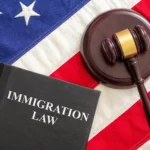
In today’s rapidly evolving media landscape, businesses face unprecedented challenges in managing their public image and communications. Whether dealing with crisis management, brand building, or stakeholder engagement, organizations increasingly rely on professional public relations expertise. Understanding what constitutes a trusted PR agency and how to identify one has become crucial for business leaders who want to protect and enhance their company’s reputation.
Understanding the Role of Public Relations Agencies
Public relations agencies serve as intermediaries between organizations and their various audiences, including customers, investors, employees, and the general public. Unlike advertising, which involves paid promotional content, PR focuses on earning media coverage and building authentic relationships with key stakeholders.
A professional PR firm typically offers services such as media relations, crisis communication, content creation, social media management, and strategic communications planning. These agencies work to shape public perception through carefully crafted messaging and relationship building with journalists, influencers, and other opinion leaders.For more info, visit this website.
Key Characteristics of a Trusted PR Agency
Proven Track Record and Industry Experience
A trusted PR agency demonstrates its reliability through documented success stories and long-term client relationships. Look for agencies that can provide case studies showing measurable results, such as increased media coverage, improved brand sentiment, or successful crisis management. Industry experience matters significantly, as agencies familiar with your sector understand the unique challenges, regulations, and media landscape you face.
Established agencies often have relationships with key journalists and media outlets in relevant industries, which can prove invaluable when seeking coverage or managing sensitive situations. They understand the nuances of different media channels and can tailor messaging accordingly.
Transparent Communication and Reporting
Trustworthy PR agencies prioritize clear, honest communication with their clients. They provide regular, detailed reports on campaign performance, media coverage, and return on investment. These agencies don’t make unrealistic promises about guaranteed media placements or overnight reputation transformations.
Instead, they set realistic expectations and provide honest assessments of challenges and opportunities. They should be able to explain their strategies in plain language and justify their recommendations with data and industry insights.
Ethical Standards and Professional Integrity
A trusted PR agency adheres to professional ethical standards, such as those outlined by the Public Relations Society of America (PRSA). This includes being truthful in all communications, respecting confidentiality, and avoiding conflicts of interest.
Ethical agencies won’t engage in deceptive practices like creating fake grassroots movements or spreading false information about competitors. They understand that building trust requires consistency between words and actions, both for themselves and their clients.
Legal and Compliance Considerations
Understanding Disclosure Requirements
Modern PR work often intersects with legal requirements, particularly regarding disclosure and transparency. A trusted PR agency understands Federal Trade Commission (FTC) guidelines for sponsored content, social media endorsements, and influencer partnerships. They ensure that any paid partnerships or sponsored content is properly disclosed to maintain legal compliance and public trust.
These agencies also understand the importance of accurate representation in all communications and help clients avoid statements that could be considered misleading or false advertising.
Crisis Management and Legal Coordination
During crisis situations, trusted PR agencies work closely with legal teams to ensure that public communications don’t compromise ongoing legal proceedings or create additional liability. They understand the delicate balance between transparency and legal protection, helping clients communicate effectively while safeguarding their interests.
How to Evaluate and Select a PR Agency
Research and Due Diligence
Begin your search by researching agencies that specialize in your industry or have experience with similar challenges. Review their client portfolios, case studies, and media coverage of their own work. Check professional associations and industry awards, which can indicate peer recognition and professional standards.
Request references from current and former clients, and don’t hesitate to ask specific questions about the agency’s performance, communication style, and ability to deliver on promises.
Interview Process and Chemistry
The relationship between a client and PR agency requires trust, open communication, and strategic alignment. During interviews, pay attention to how well the agency listens to your concerns and whether they ask thoughtful questions about your business goals and challenges.
A trusted agency will want to understand your company culture, values, and long-term objectives before proposing strategies. They should demonstrate genuine interest in your success rather than simply presenting generic solutions.
Contract Terms and Expectations
Review contract terms carefully, paying attention to performance metrics, reporting requirements, and termination clauses. A trustworthy agency will be transparent about their fee structure and willing to discuss how success will be measured.
Ensure that contracts include provisions for regular strategy reviews and adjustments based on changing circumstances or results.
Key Insights for Business Leaders
Selecting a trusted PR agency requires careful consideration of multiple factors beyond cost and location. The most reliable agencies combine industry expertise with ethical practices, transparent reporting, and genuine commitment to client success. They understand the legal implications of their work and maintain professional standards that protect both their clients and their own reputation.
Effective PR partnerships are built on mutual trust, clear communication, and shared commitment to long-term success. By understanding these fundamentals, business leaders can make informed decisions that strengthen their organization’s public relations capabilities and protect their reputation in an increasingly complex media environment.








